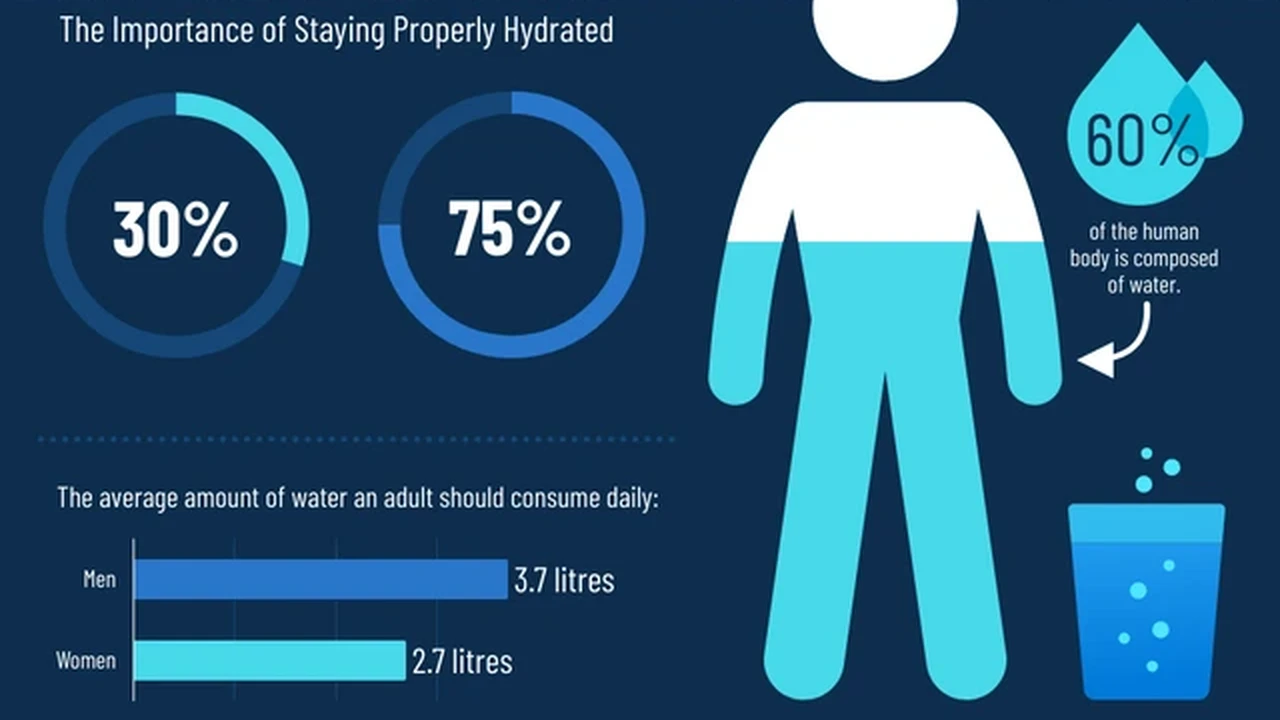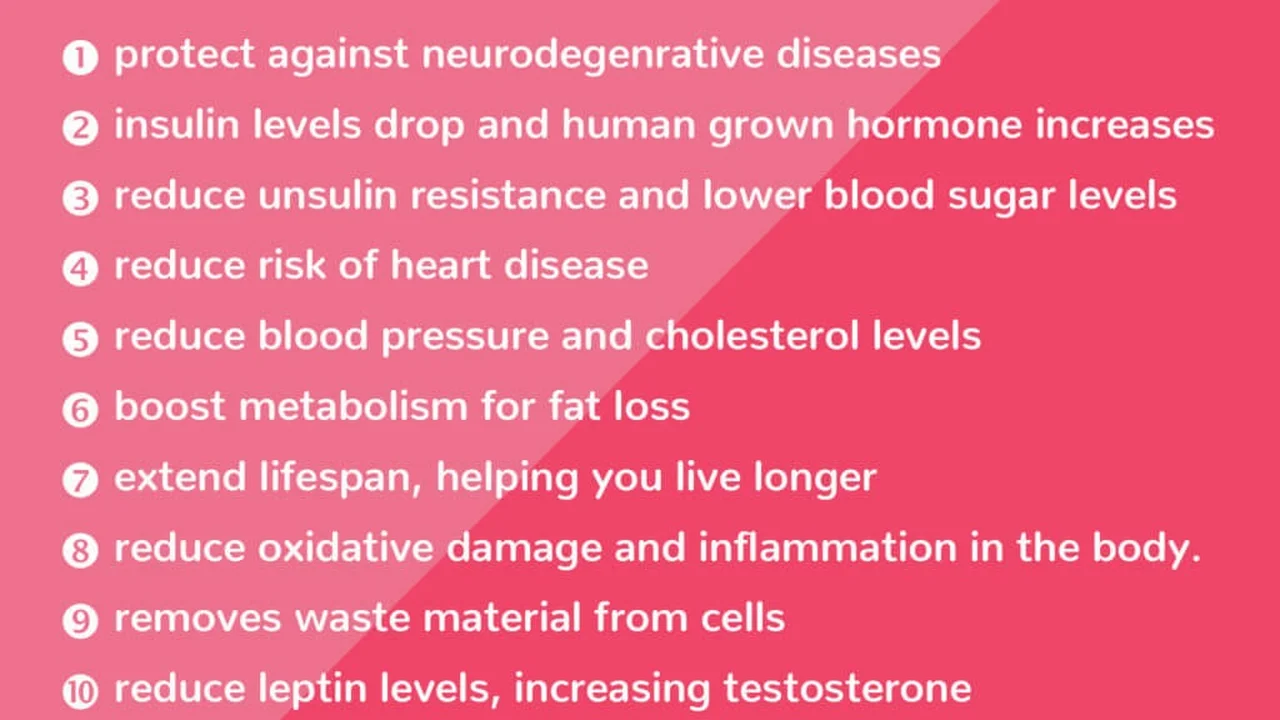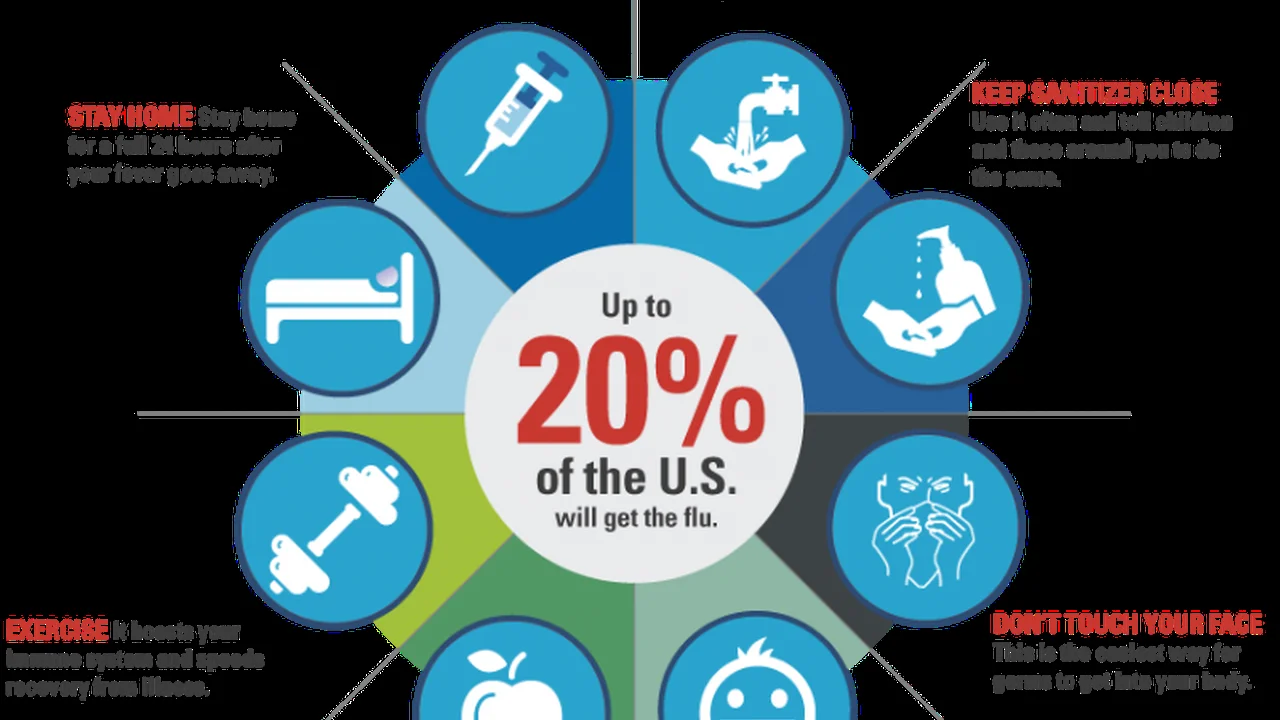The Importance of Hydration: Tips for Staying Hydrated
Sample meta description.

Understanding the Vital Role of Water for Optimal Health Hydration Benefits
Alright, let's talk water! You know you need it, but do you *really* know why? It's not just about quenching thirst. Water is like the ultimate multi-tasker in your body. It's involved in pretty much everything from regulating your temperature to transporting nutrients and getting rid of waste. Think of it as the oil that keeps your engine running smoothly. Without enough, things start to grind to a halt. We're talking fatigue, headaches, digestive issues, and even skin problems. So, staying hydrated isn't just a good idea, it's essential for feeling your best.
Did you know that your body is about 55% to 78% water, depending on your body size? That's a lot! And you're constantly losing water throughout the day through sweating, breathing, and, well, you know. That's why it's so important to replenish those fluids regularly. Don't wait until you feel thirsty, because by then, you're already a little dehydrated. Think of it like topping off your gas tank before it's completely empty.
Recognizing Dehydration Early Warning Signs Thirst Indicators
Okay, so how do you know if you're not getting enough H2O? Thirst is the obvious one, but as we mentioned, it's not the *best* indicator. Pay attention to these other signs:
- Headaches: Dehydration can cause your brain to shrink slightly, leading to headaches.
- Fatigue: Feeling tired and sluggish? Water helps transport nutrients to your cells, so a lack of it can leave you feeling drained.
- Dry Mouth and Skin: Pretty self-explanatory, right? Your body is trying to conserve water, leading to dryness.
- Dark Urine: Your urine should be a pale yellow color. If it's dark yellow or amber, you're likely dehydrated.
- Dizziness: Dehydration can lower your blood pressure, leading to dizziness, especially when standing up quickly.
- Muscle Cramps: Electrolytes, which are lost through sweat, are crucial for muscle function. Dehydration can disrupt electrolyte balance, causing cramps.
- Constipation: Water helps keep things moving in your digestive system. Without enough, things can get backed up.
Listen to your body! If you're experiencing any of these symptoms, reach for a glass of water ASAP.
Effective Strategies for Daily Hydration Habits and Water Intake
Alright, let's get practical. How do you actually *stay* hydrated throughout the day? Here are some tips and tricks:
- Carry a Water Bottle: This is the easiest way to remind yourself to drink. Keep it filled and with you at all times.
- Set Reminders: Use your phone to set reminders to drink water throughout the day. There are even apps that can help with this!
- Drink Before, During, and After Exercise: You lose a lot of water through sweat when you're working out, so it's crucial to replenish it.
- Eat Water-Rich Foods: Fruits and vegetables like watermelon, cucumbers, and strawberries are packed with water.
- Drink Water with Meals: Make it a habit to have a glass of water with every meal.
- Infuse Your Water: If you find plain water boring, try adding slices of lemon, lime, cucumber, or berries to give it some flavor.
- Replace Sugary Drinks with Water: Soda, juice, and sports drinks are often high in sugar and can actually dehydrate you. Stick to water instead.
- Pay Attention to the Weather: You'll need to drink more water when it's hot and humid.
The general recommendation is to drink eight 8-ounce glasses of water per day, but this can vary depending on your activity level, climate, and overall health. A good rule of thumb is to drink enough water so that your urine is a pale yellow color.
Beyond Water Exploring Different Hydrating Beverages Electrolyte Drinks
While water is the best choice for hydration, there are other beverages that can help you stay hydrated too. Here's a quick rundown:
- Herbal Tea: Unsweetened herbal tea is a great alternative to water. It's caffeine-free and can provide antioxidants.
- Coconut Water: Coconut water is a natural source of electrolytes, which can be helpful after exercise.
- Electrolyte Drinks: Sports drinks like Gatorade and Powerade can help replenish electrolytes lost through sweat. However, they can also be high in sugar, so use them sparingly. Look for low-sugar or sugar-free options.
- Fruit-Infused Water: Adds flavor and some vitamins.
Be mindful of sugary drinks like soda and juice, as they can actually dehydrate you in the long run.
Hydration Products Recommendations Water Bottles Filters and Accessories
Okay, let's dive into some product recommendations to help you stay hydrated in style!
High-Quality Water Bottles Product Review Material Comparison
First up, water bottles! Here are a few of my favorites, with different materials and price points:
- Hydro Flask (Stainless Steel): These are super popular for a reason. They're durable, keep your drinks cold for hours, and come in a ton of colors. The downside is that they can be a bit pricey (around $30-$50), and they're not always dishwasher safe. They're great for everyday use, hiking, and travel. Available at most sporting goods stores and online retailers like Amazon.
- Nalgene (Tritan Plastic): These are a classic for a reason. They're virtually indestructible, BPA-free, and dishwasher safe. They're also very affordable (around $10-$20). The downside is that they don't keep your drinks cold for very long. Perfect for the gym, school, or camping. Available at most sporting goods stores and online retailers like Amazon.
- Brita Filter Water Bottle (Plastic with Filter): If you're concerned about the quality of your tap water, this is a great option. It filters your water as you drink, removing chlorine and other impurities. They're reasonably priced (around $20-$30), but you'll need to replace the filter every few months. Great for travel and areas with questionable water quality. Available at most major retailers like Target and Walmart, and online.
- Nomader Collapsible Water Bottle (Silicone): Perfect for travel, this bottle rolls up when empty to save space. Made from BPA-free silicone, it's durable and easy to clean. Around $25-$35 on Amazon.
Product Comparison: Stainless steel bottles like Hydro Flask are best for temperature retention, while plastic bottles like Nalgene are more durable and affordable. Filter bottles like Brita are ideal for improving water quality on the go. Collapsible bottles like Nomader are best for travel and space-saving.
Water Filters Types Benefits and Cost Analysis
If you want to take your hydration game to the next level, consider investing in a water filter.
- Brita Water Filter Pitcher: A classic for home use, these pitchers filter out chlorine, lead, and other impurities. The pitchers themselves range from $20-$40, and replacement filters cost around $5-$10 each (lasting about 2 months). Available at most major retailers.
- Berkey Water Filter: A more advanced gravity-fed filter system that removes a wider range of contaminants. These are more expensive, starting around $300, but the filters last for years. Ideal for those concerned about water quality and those who want a long-term solution. Available online and at some specialty retailers.
- Lifestraw Personal Water Filter: Great for hiking and camping, this straw allows you to drink directly from streams and lakes. It filters out bacteria and protozoa. Around $20 on Amazon and at sporting goods stores.
Product Comparison: Brita pitchers are convenient and affordable for everyday use, Berkey filters offer more comprehensive filtration for long-term use, and Lifestraws are essential for outdoor adventures.
Hydration Accessories Enhancing Your Water Drinking Experience
Let's not forget the accessories!
- Water Bottle Cleaning Tablets: Keep your water bottle clean and fresh with these convenient tablets. Available on Amazon for around $10-$15.
- Water Bottle Carrier: For hands-free carrying during hikes or walks. Prices vary depending on the style and material, ranging from $10-$30 on Amazon.
- Fruit Infusion Pitcher: Make delicious and healthy infused water at home. Available at most major retailers for around $20-$30.
The Impact of Hydration on Athletic Performance Workout Recovery
If you're an athlete, hydration is even *more* critical. Dehydration can significantly impact your performance, leading to fatigue, muscle cramps, and decreased endurance. Make sure you're drinking plenty of water before, during, and after your workouts.
Electrolyte drinks can be helpful after intense workouts to replenish electrolytes lost through sweat. However, be mindful of the sugar content and choose low-sugar options when possible.
Hydration and Skin Health Achieving a Radiant Complexion
Want glowing skin? Hydration is key! Water helps keep your skin cells plump and hydrated, reducing the appearance of wrinkles and fine lines. It also helps flush out toxins, which can contribute to skin problems like acne.
Drinking plenty of water is one of the easiest and most effective ways to improve your skin's appearance. Pair it with a good skincare routine for optimal results.
Addressing Common Hydration Myths Misconceptions and Facts
Let's debunk some common hydration myths:
- Myth: You only need to drink water when you're thirsty. Fact: As we mentioned earlier, thirst is not the best indicator of hydration. Drink water regularly throughout the day, even when you're not thirsty.
- Myth: All beverages are equally hydrating. Fact: Sugary drinks like soda and juice can actually dehydrate you. Stick to water, herbal tea, and other healthy options.
- Myth: You can't drink too much water. Fact: While rare, it is possible to overhydrate, leading to a condition called hyponatremia. This is more common in endurance athletes who drink excessive amounts of water without replenishing electrolytes.
Hydration for Different Age Groups Children Seniors and Pregnant Women
Hydration needs vary depending on age and life stage.
- Children: Children are more susceptible to dehydration than adults because they have a higher surface area to body weight ratio. Make sure your kids are drinking plenty of water throughout the day, especially when they're active.
- Seniors: Seniors may have a decreased sense of thirst and may be taking medications that can dehydrate them. Encourage them to drink water regularly, even if they don't feel thirsty.
- Pregnant Women: Pregnant women need to drink even more water than usual to support the growing fetus and maintain amniotic fluid levels.
Seasonal Hydration Summer Heat Winter Dryness and Optimal Fluid Intake
Your hydration needs can also vary depending on the season.
- Summer: You'll need to drink more water in the summer to compensate for the increased sweat loss.
- Winter: The air is often drier in the winter, which can lead to dehydration. Make sure you're drinking plenty of water, even if you don't feel as thirsty.
Staying hydrated is a year-round commitment to your health and well-being. Make it a priority!
:max_bytes(150000):strip_icc()/277019-baked-pork-chops-with-cream-of-mushroom-soup-DDMFS-beauty-4x3-BG-7505-5762b731cf30447d9cbbbbbf387beafa.jpg)






